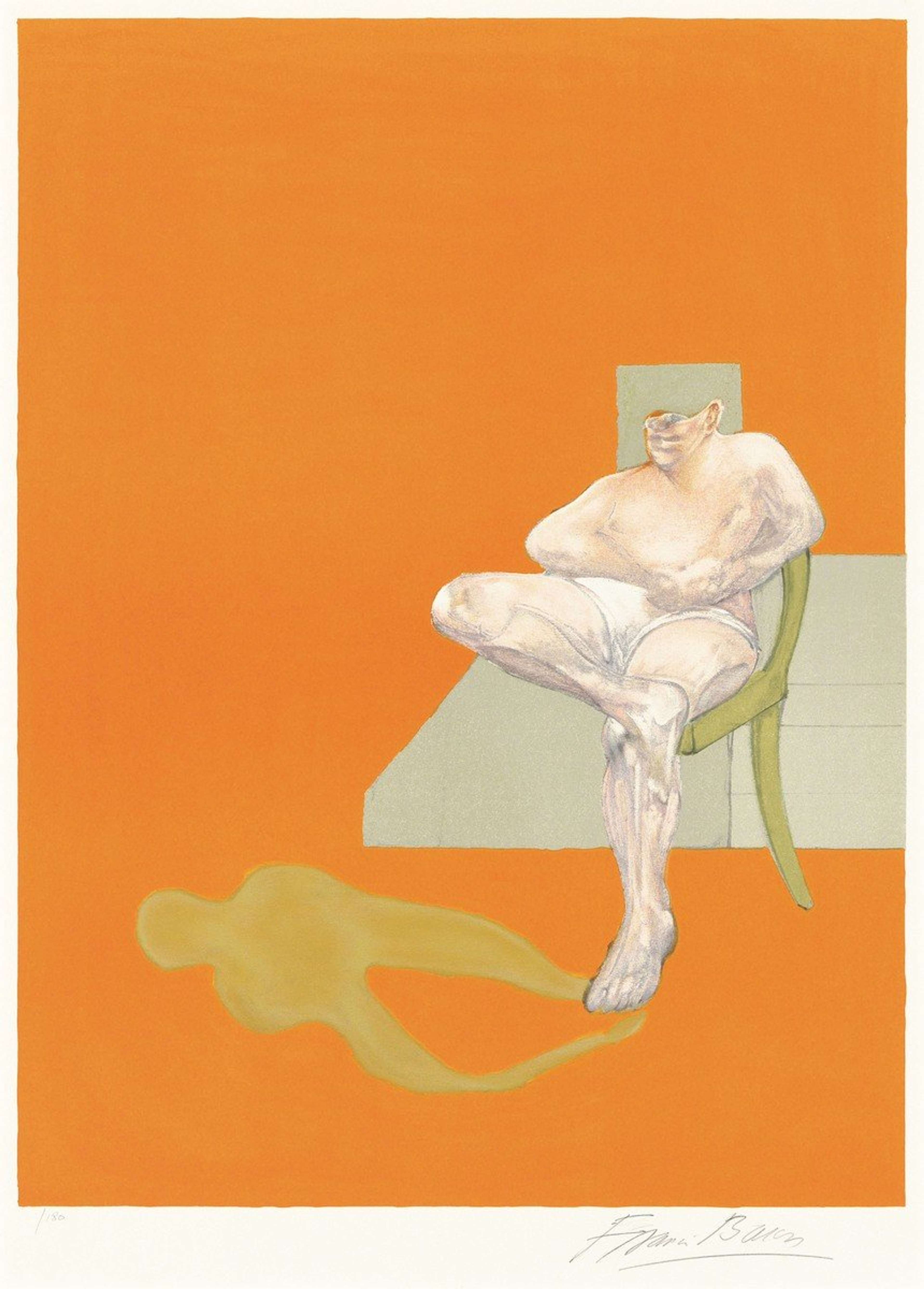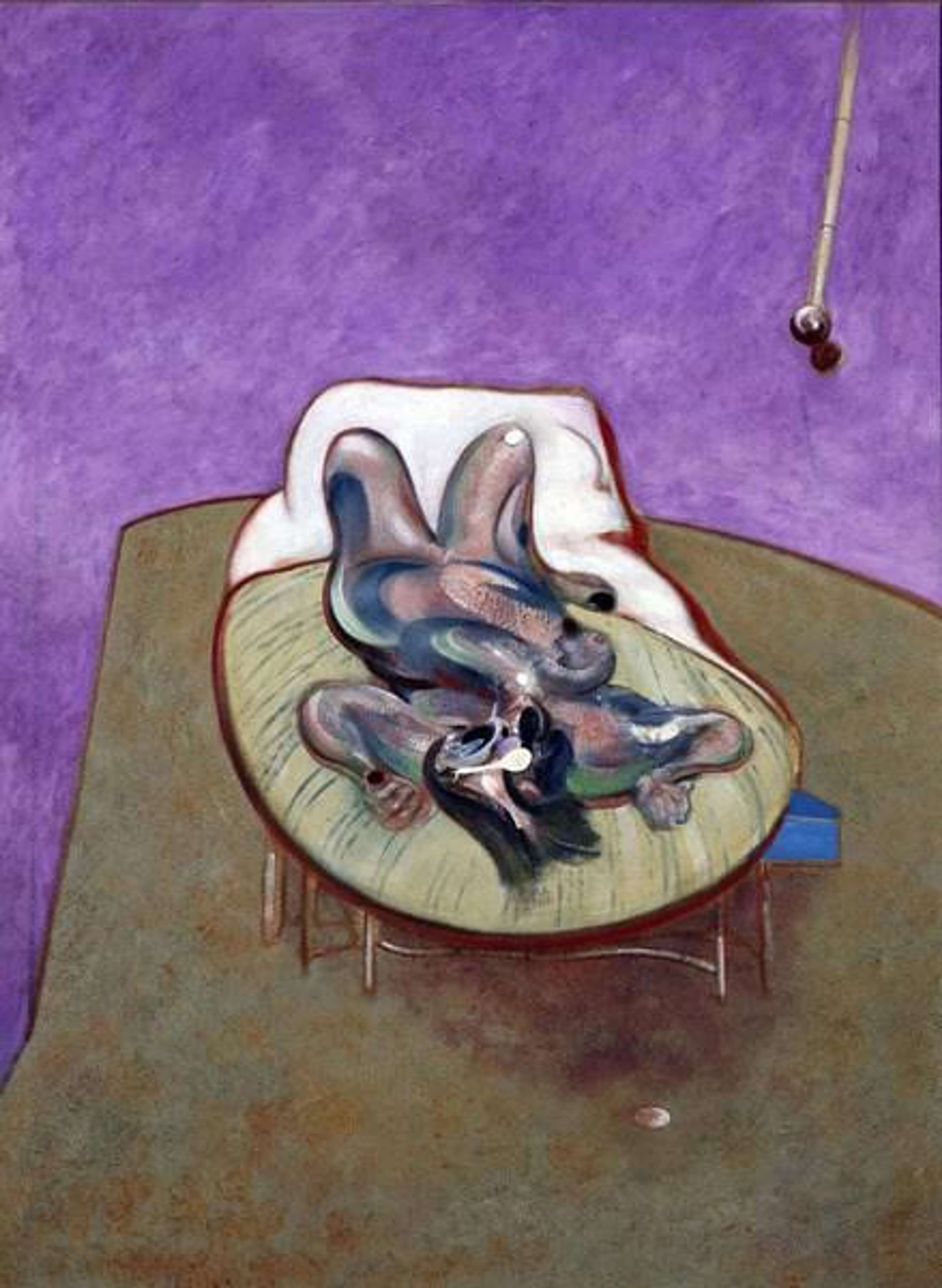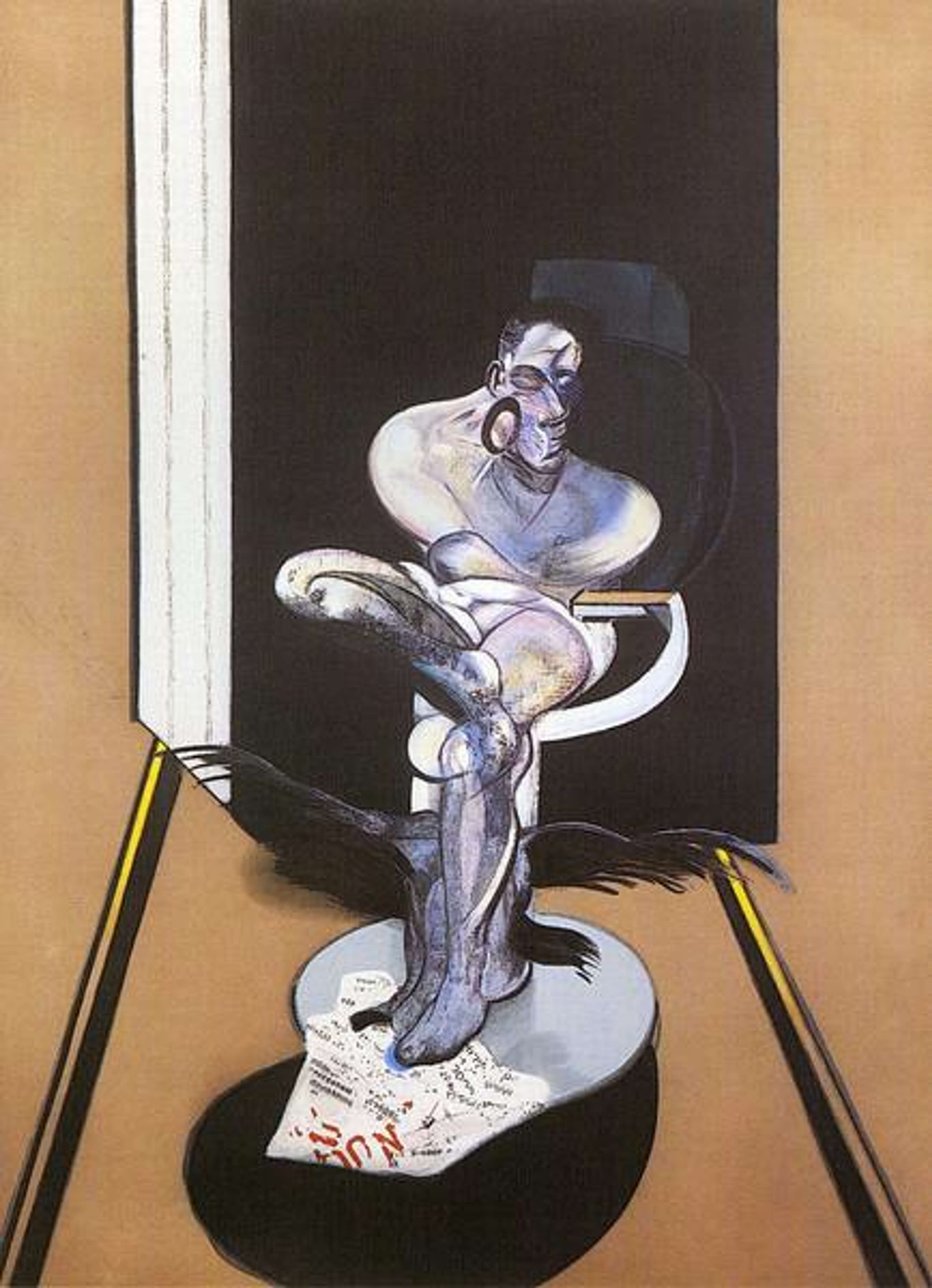 Triptych 1983 (right panel) © Francis Bacon 1983
Triptych 1983 (right panel) © Francis Bacon 1983
Francis Bacon
58 works
Key Takeaways
Three decades after Francis Bacon's death, his art remains highly coveted, with his works held in prestigious museums and private collections worldwide. Bacon's haunting depictions of the human condition continue to influence collectors, including notable figures such as Damien Hirst, Roman Abramovich, Elton John, and Sheikha Al Mayassa. Bacon’s work, known for its exploration of existential themes and emotional intensity, holds an enduring appeal that cements his status as one of the most significant artists of the 20th century.
Three decades after his death, Francis Bacon continues to captivate the art world, his works occupying prestigious positions in museums and private collections across the globe, a testament to his enduring influence. His visceral, haunting depictions of the human condition strike a chord with audiences, blending existential inquiry with a raw, painterly beauty that remains uniquely his own. While many collectors keep their Bacon works out of public view, several prominent figures have openly shared their admiration and collection of his art, further solidifying his status as a symbol of profound artistic exploration and discerning personal taste.
Damien Hirst
Damien Hirst, one of Britain’s most renowned contemporary artists, is a passionate collector of Bacon's work, owning at least five significant pieces. Among these is A Study for a Figure at the Base of the Crucifixion (1943-44), a pivotal early work by Bacon, which Hirst exhibited as part of his Murderme Collection at the Serpentine Gallery. He also owns the rare Crucifixion (1933), a painting that first propelled Bacon into the public eye, and a Self-Portrait he purchased for a remarkable £25 million at auction in 2007. Hirst has long admired Bacon’s ability to confront themes of pain, brutality, and existential dread through his art. For Hirst, Bacon represents the ultimate expression of painting, a medium he felt had “seemed dead” until Bacon revitalised it with raw emotion and daring imagery. Bacon’s influence on Hirst is clear, with Hirst openly acknowledging a profound creative debt to Bacon's powerful and unsettling works.
Roman Abramovich
Roman Abramovich, the Russian billionaire and former owner of Chelsea Football Club, made headlines in 2008 when he purchased Bacon's Triptych, 1976 for an astonishing £43 million at a Sotheby’s auction in New York. This acquisition set a record at the time for the highest price ever paid for a Bacon work, and it highlighted Abramovich’s status as a major player in the art world. The triptych, one of Bacon’s most famous postwar pieces, showcases his bleak exploration of human suffering and existential dread. Abramovich's purchase was part of a remarkable spree in which he also acquired Lucian Freud’s Benefits Supervisor Sleeping for £26.5 million, further cementing his role as a prominent collector of iconic modern and contemporary art. His investment in Bacon's art reflects his deep appreciation for the artist’s raw and provocative style, which continues to captivate art lovers and collectors worldwide.
Elton John
Sir Elton John, the legendary British musician, is celebrated for his remarkable art collection, which he began amassing in the 1970s. Known for his discerning taste, John has a deep admiration for Bacon's intense and emotionally charged works. Bacon's raw, often unsettling portrayals of the human form, exploring themes of anguish, isolation, and existential suffering, resonate strongly with John’s appreciation for art that is both challenging and thought-provoking. Bacon’s ability to capture these profound themes makes his pieces a highly valued part of John’s collection, underscoring the musician’s commitment to acquiring art that pushes boundaries and delves into the depths of human experience.
 Study For A Portrait Of Pope Innocent X © Francis Bacon 1989
Study For A Portrait Of Pope Innocent X © Francis Bacon 1989Sheikha Al Mayassa bint Hamad Al Thani
Sheikha Al Mayassa, the daughter of the Emir of Qatar and a key figure in the art world, is believed to be the buyer of several prominent Bacon works. As head of the Qatar Museums Authority, Sheikha Al Mayassa is known for her immense influence in the global art market, with an annual budget of around $1 billion to acquire significant works of art for Qatar’s national collections. Among her notable acquisitions is Bacon's Study from Innocent X (1962), purchased for £40 million in 2007. Sheikha Al Mayassa’s acquisitions of Bacon’s works align with her mission to establish Qatar as a cultural hub and to build one of the world’s most significant modern art collections. Her strategic purchases have positioned her as one of the most powerful figures in the art world, further enhancing Bacon’s legacy on the global stage.
Joseph C. Lewis
Joseph C. Lewis, the British billionaire and former majority owner of Tottenham Hotspur, is a notable art collector with a particular affinity for Bacon's work. In 2008, Lewis acquired Bacon's Triptych 1974 for £26.3 million, a price that now appears to be a significant bargain considering the artwork's stature and current value of £53 million. This striking piece, which features male nudes and black umbrellas set against a desolate, purgatorial beach, is characteristic of Bacon’s exploration of existential themes and the human condition. Lewis recognised the value of this masterful composition, which showcases Bacon’s intensely emotional visual depth.
 Portrait Of Lucian Freud © Francis Bacon 1966
Portrait Of Lucian Freud © Francis Bacon 1966Elaine Wynn
Elaine Wynn, often referred to as the ‘Queen of Las Vegas’, is a prominent art collector with an impressive collection valued at around £285 million, according to Forbes. Among her most significant acquisitions is Bacon’s Three Studies of Lucian Freud (1969), which she purchased for a staggering £107 million, making it one of the most expensive artworks ever sold. This iconic triptych, depicting Bacon’s friend and fellow artist Lucian Freud, is a prime example of Bacon's provocative, psychologically gripping style. Wynn’s ownership of such a masterpiece highlights her position as a major figure in the global art market, known for securing works by some of the most influential artists of the 20th century.










